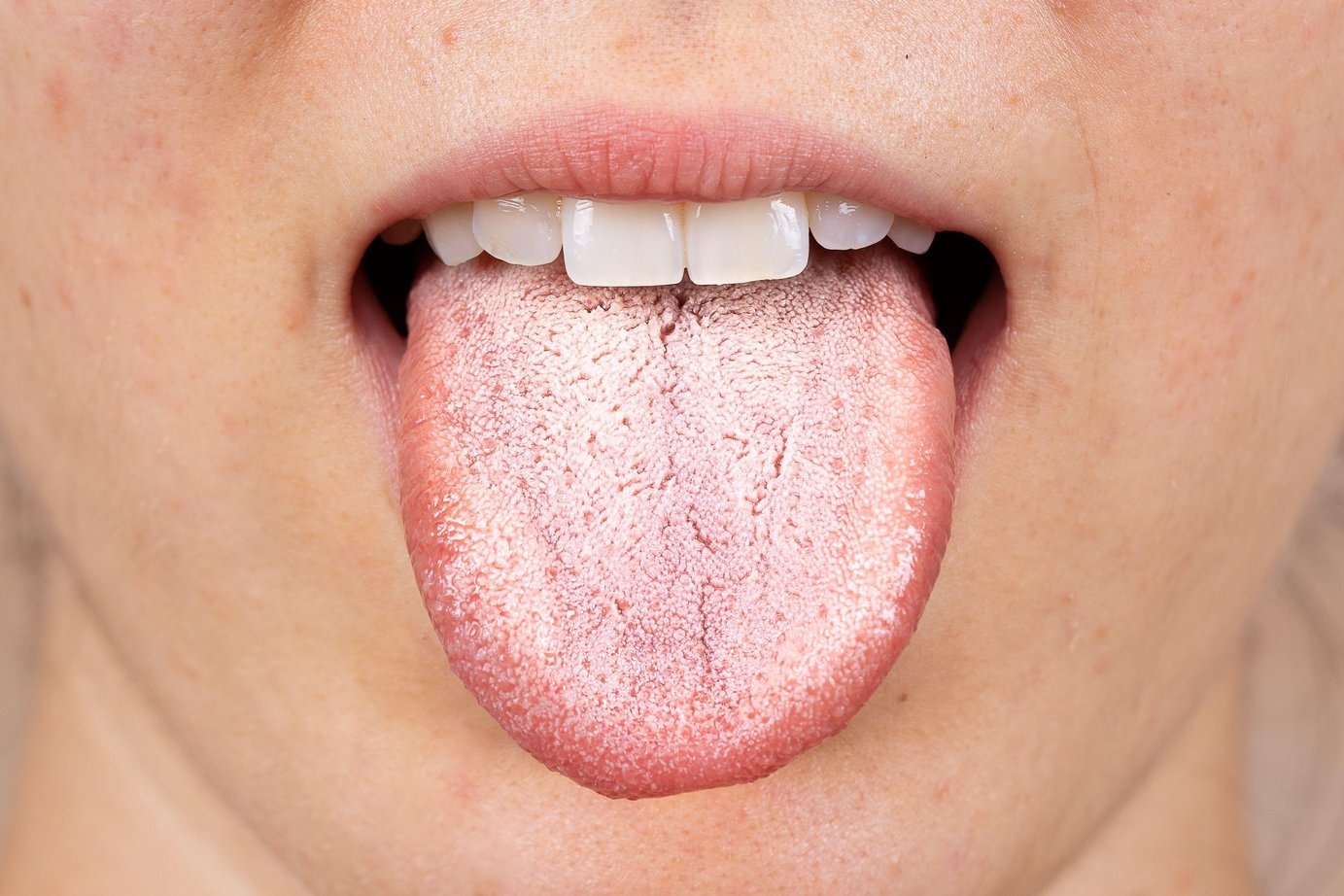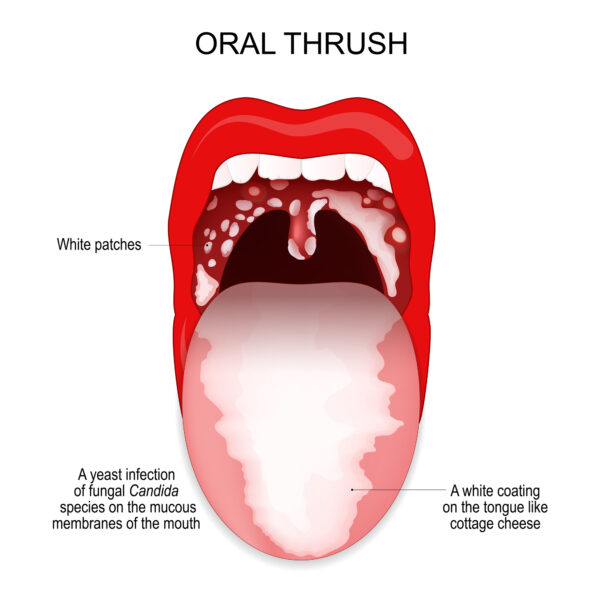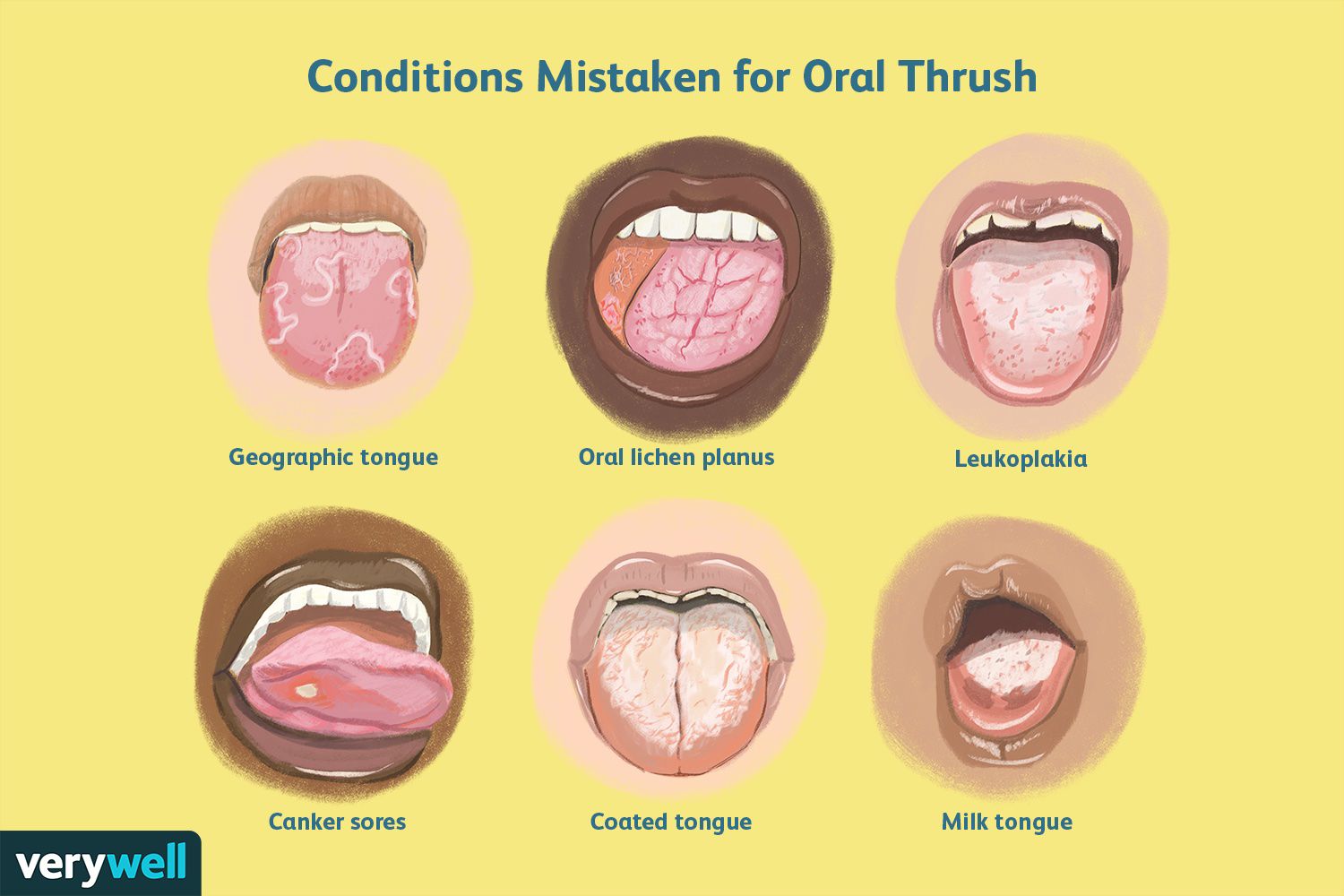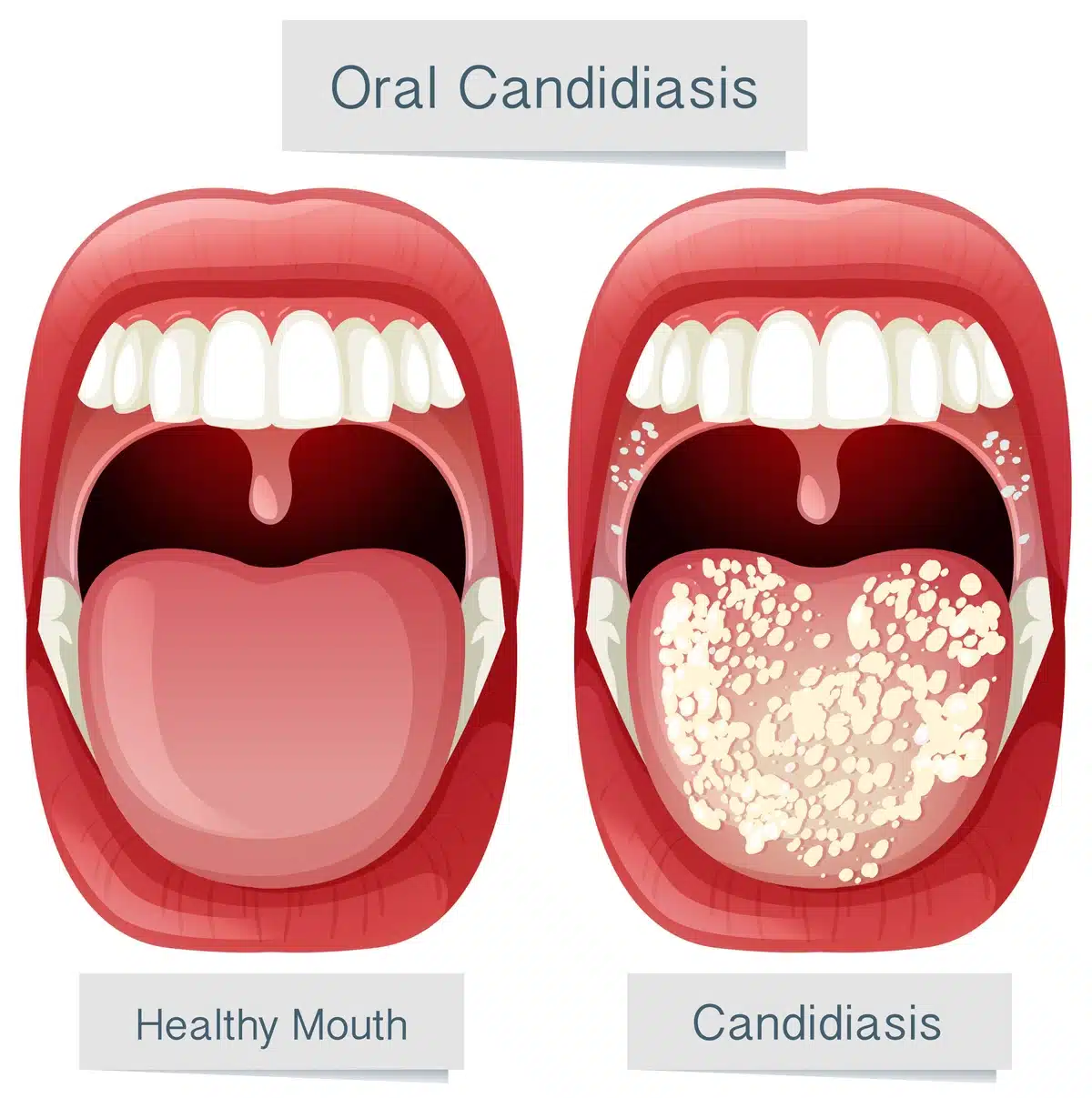
Key facts
- Oral thrush, also known as oral candidiasis, is a mouth infection caused by a yeast fungus.
- Many people have candida present in their mouth without experiencing any problems.
- There are many risk factors for developing oral thrush including diabetes, chronic illness and poor dental hygiene.
- Oral thrush can be treated with antifungal mouthwashes, ointments or medications.
- See your doctor if you have severe symptoms of oral thrush or your symptoms return after treatment.
What is oral thrush?
Oral thrush, also known as oral candidiasis, is an infection of the mouth caused by yeast (a type of fungus) known as candida.
Candida doesn’t always cause symptoms. Most people have candida present in their mouth without experiencing any problems.
Candida can cause problems when there is a change in the microbes (tiny living particles) living inside the mouth. This reduces the number of good bacteria and allows the yeast fungus to grow and multiply.

What causes oral thrush?
Oral thrush is caused by a yeast fungus called candida. There a few different types of candida that can cause oral thrush, but candida albicans is the most common cause.
Who gets oral thrush?
You are more likely to suffer from oral thrush if you:
- have diabetes
- have chronic medical conditions like cancer or untreated HIV
- taking antibiotics (especially for long periods of time)
- are dependent on drugs
- eat a poor diet (have malnutrition)
- wear dentures (especially if they do not fit well)
Oral thrush can also be a side effect of inhaled corticosteroids, a type of medication used in lung conditions such as asthma.
What are the symptoms of oral thrush?

Oral thrush causes white patches in the mouth that can be wiped away, leaving red and bleeding areas.
Other symptoms may include:
- pain or burning in the mouth
- an unpleasant taste
- trouble tasting food
- a red mouth and throat
- cracks at the corners of the mouth
- difficulty eating and drinking
If you are concerned that you might have oral thrush, check your symptoms with healthdirect’s online Symptom Checker to get advice on when to seek medical attention.
When should I see my doctor?
Many treatments for oral thrush are available at your local pharmacy without a doctor’s prescription. If you have had thrush before and know what it feels like, you may decide to speak to your pharmacist and buy an over-the-counter treatment.
You should see your doctor if you’re not sure what is causing your symptoms, if your symptoms are severe, or if they come back after treatment.
How is oral thrush diagnosed?
Your doctor can diagnose oral thrush by asking about your symptoms and examining your mouth. If your doctor isn’t sure if you have oral thrush, or if your symptoms do not respond to treatment, your doctor may perform a swab of your mouth sores. This can confirm the diagnosis and help choose the best treatment for you.
In rare cases, your doctor may refer you for an endoscopy to see if you also have thrush in your oesophagus or digestive tract.
How is oral thrush treated?
There are a number of treatments available to relieve oral thrush.
Your doctor or pharmacist may recommend an antifungal mouthwash, ointment or lozenge. In some cases, your doctor may prescribe an antifungal medication in the form of a tablet.
You will usually need to continue treatment for at least 1 week. Every treatment is different, so ask your doctor or pharmacist if you have any questions.
Speak to your doctor if the thrush comes back after treatment.
How can I prevent oral thrush?
Here are some tips to prevent oral thrush:
- Brush your teeth after each meal with fluoride toothpaste to reduce the build-up of bacteria in your mouth.
- Don’t use antiseptic mouthwashes. These can change the balance of ‘good’ bacteria in the mouth, allowing candida to grow and cause oral thrush.
- If you wear dentures, make sure that they are cleaned properly and that the skin under the dentures is also clean. Rinse your mouth out after every meal.
- If you use inhaled corticosteroids, rinse your mouth well with water after each inhalation.
- Drink water, unless you have an existing medical condition that means this is not possible.
- if you smoke, try to cut down or quit. Smoking can make symptoms worse.




